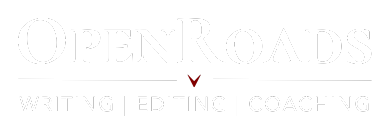Writing a book proposal often seems like a step reserved for those pitching to big-name publishers or vying for the attention of literary agents. It’s often seen as a tool exclusively reserved for authors pursuing traditional publishing deals.
But this mindset overlooks the immense value that a proposal brings to all writers—whether they’re seasoned professionals, first-time authors, or even self-published ones.
The truth is, it serves as far more than a pitch. It’s a strategic framework that helps writers clarify their vision, refine their ideas, and create a clear path toward reaching their audience. Even writers with established book contracts rely on proposals to navigate the publishing process.
They’re essential for self-published authors looking to create a marketable and impactful book. And for those submitting to indie or university presses, the proposal often becomes intertwined with the book’s promotional materials and marketing content.
Here’s why every writer should write a book proposal—and how doing so can empower you to take control of your project, connect with your audience, and elevate your writing career.
For Experienced Writers and Traditionally Published Authors
You might think that once you land a publishing contract, your days of writing them are behind you. However, even experienced writers with successful publishing histories still rely on proposals to push their projects forward.
Why? Because editors use these documents to secure buy-in from marketing and sales teams. While the editor might love your idea and believe in its potential, they still need to convince their colleagues that your book is worth the investment.
It’s a persuasive pitch—a document demonstrating your book’s viability in the marketplace. It outlines your audience, why your book matters, and how it can stand out among competing titles.
In many cases, elements of the proposal—like the overview—become part of your book’s promotional materials. The description you painstakingly craft for your proposal will likely serve as the blurb on the back cover or the summary featured in online listings.
By taking control of this process early on, you ensure that your vision remains intact as your book moves through various stages of publication.
For Authors Submitting to Indie or University Presses
Indie and university presses operate differently from large traditional publishers, but they still expect well-crafted proposals. In fact, the role of the proposal may be even more critical in these contexts.
At smaller presses, your proposal often becomes part of the marketing strategy. For them, it will likely be the foundation for how your book will be positioned to readers, libraries, and academic institutions. For instance, the overview section of your proposal might be repurposed into the book description, while your market analysis could inform the press’s promotional efforts.
By taking the time to create a thoughtful and detailed proposal, you provide the press with the tools they need to market your book successfully. You also ensure that your ideas are presented how you intended, giving you greater control over your project’s trajectory.
For Self-Published Authors
If you’re self-publishing, you might wonder whether a book proposal is worthwhile. After all, you’re not pitching to an agent or editor—so why bother?
The answer lies in the insights and clarity that the proposal process provides. When you write a book proposal, you’re forced to think critically about your target audience. Who are they? What are their needs and desires? What gaps exist in the market, and how does your book fill those gaps?
By answering these questions, you gain a deeper understanding of your audience and how to connect with them. This knowledge will help you sell your book and help you write a book that your readers are eager to pick up.
Whether you’re crafting nonfiction, fiction, or even poetry, understanding your audience is the key to creating work that resonates.
Additionally, a book proposal acts as a roadmap for your self-publishing journey. It helps you plan your marketing strategy, identify promotional opportunities, and set realistic goals for your book’s release. From concept to execution, the proposal keeps you focused and organized, ensuring that every decision you make aligns with your overall vision.
Book Proposals: Primarily for Nonfiction, with Exceptions
Book proposals are generally associated with nonfiction projects, where they serve as a powerful tool to outline the concept, structure, and market potential of the book. For nonfiction, it’s common for publishers to acquire a book based on the strength of a proposal alone, without requiring a completed manuscript. This allows authors to secure a deal before dedicating the time and resources to writing the entire book.
Fiction, however, operates differently. Novels are almost never sold on proposal alone, as publishers and agents usually require a fully written manuscript to assess the story’s voice, structure, and execution.
Memoirs fall somewhere in between—sometimes a compelling proposal can sell the project, but in many cases, especially for emerging writers, publishers prefer to see the complete manuscript.
For writers without prior publishing credentials, completing the manuscript first is highly recommended. A well-written proposal can then help demonstrate the book’s potential and uniqueness to agents and publishers, making it an invaluable tool even if it’s not strictly required.
Whether or not a proposal is mandatory, its benefits go beyond the pitching process.
Proposals help authors solidify their vision and strategy while offering publishers a clear roadmap for the book’s marketing and positioning. Across all genres, understanding how a book proposal works and creating one can give writers a professional edge and greater control over their projects.
The Value of the Process
Regardless of your publishing path, the process of writing a book proposal forces you to clarify your ideas, identify any weaknesses, and refine your message. It challenges you to think beyond the creative side of writing and consider the business aspects of publishing—such as market positioning, audience demographics, and promotional strategies.
For many writers, this process can feel overwhelming. It requires deep reflection, thorough research, and time. But the rewards are well worth the effort. By the time you finish your proposal, you’ll have a clear understanding of your book’s purpose, potential, and path forward.
You’ll also have a professional document that showcases your vision to publishers, collaborators, and readers alike.
Why All Genres Benefit
It’s important to note that the value of a book proposal extends across all genres. Whether you’re writing nonfiction, fiction, memoir, or poetry, the proposal process helps you define your project and position it in the market.
- For nonfiction authors, the proposal provides a clear framework for presenting your expertise, outlining your book’s content, and demonstrating its relevance to your audience.
- For fiction writers, the proposal helps you highlight the unique elements of your story, articulate your themes, and showcase your writing style.
- For memoirists, the proposal allows you to connect your personal narrative to universal themes, ensuring your story resonates with readers.
- For poets, the proposal helps you position your collection within the broader landscape of contemporary poetry, identifying its appeal to both casual readers and literary enthusiasts.
Conclusion
A book proposal is a strategic tool that empowers writers to succeed in a competitive publishing landscape. They provide clarity, structure, and insight, allowing authors to take control of their projects and connect with their audiences.
Whether you’re an experienced writer with a book contract, a self-published author exploring new opportunities, or someone submitting to indie or university presses, creating a proposal can transform the way you approach your work.
Ready to take the next step? Check out our post on How to Write a Nonfiction Book Proposal for practical steps, insider tips, and everything you need to get started.



